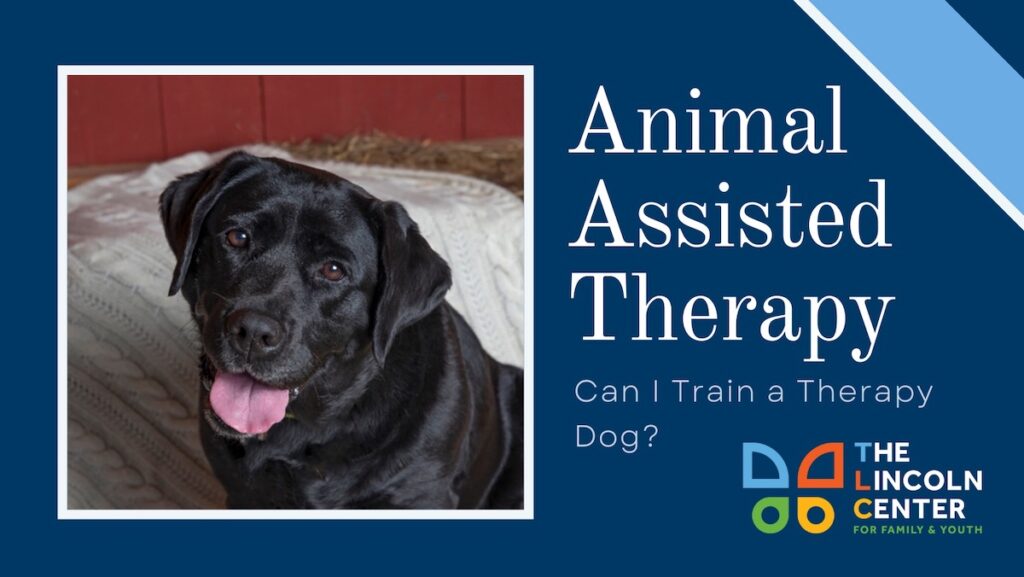The Lincoln Center: Animal Assisted Therapy (Part 2)

By Gretchen Tucker
This article was originally published on June 20th, 2022 on DelcoToday
In a previous article, I shared about the benefits of animal-assisted therapy, but another question I sometimes hear is “What is the certification process like?”
We need more therapy dogs and people who are willing to train them, but sometimes the process is daunting. Today, I wanted to share how my dog, Stella, became certified, and how she helps me now professionally.
I work as an art psychotherapist for The Lincoln Center for Family and Youth. One of the ways that I work with clients is to use art to help them express themselves and to process their experiences. Another way that I help my clients to feel comfortable opening up is with my dog Stella who lightens the mood and provides support to my clients.
When I decided to get Stella certified as a therapy dog, I learned that the journey takes time and dedication, but that it is fairly straightforward. The two main factors are temperament and training.
For Stella, she has always loved people more than other things – more than other dogs, more than playing, and almost as much as she loves delicious treats. She is a “people dog,” in the same way that a human can be a “people person.” She will wait eagerly for strangers on the sidewalk during a walk, just on the off-chance they might want to greet her and give her a pat on the head.
The training portion also came relatively easy to Stella, because she already knew many basic commands, and she was able to master new commands with lots of positive reinforcement – verbal praise, rewarding pats, and of course, delicious treats.
The training requirements for a therapy animal are rather “middle of the road” between emotional support animal (ESA) and service animal.
Emotional support animals can be almost any type of animal – cat, dog, rabbit, mini horse – the list goes on, and no particular training is required. The person must have a medical/mental health necessity for the emotional support animal, but any type of animal that provides companionship and comfort is acceptable for this role.
Service animals, on the other hand, undergo intensive training for their roles with seizure detection, diabetes assistance, guidance for people with visual impairments and blindness, etc. Service dogs may need years of training, and the expectations for their behavior are stringent because their duties can be quite high-stakes.
Stella’s duties mainly include greeting people, giving them attention, receiving their attention, and remaining calm and quiet during meetings and therapy sessions. She’s able to sleep whenever the occasion feels right to her, and she is able to have access to toys, play with her human friends, and take walk breaks between meetings and therapy sessions.
Stella is a creature who embodies unconditional positive regard toward humans. She is consistently open and warm, letting people approach her if they are wary, and enfolding them with love and affection if they choose to come close to her.
So, if you ever visit our office, don’t be shy! Stella would love to meet you and hopes you’d like to meet her too.
Gretchen Tucker, MA, ATR-BC, LPC, CCTP is a Supervisor for Mobile Victim Services at The Lincoln Center for Family and Youth
About TLC
The Lincoln Center for Family and Youth (TLC) is a social enterprise company serving the Greater Philadelphia Area. Founded in 1970 by a behavioral health hospital, TLC is an entrepreneurial nonprofit providing innovative education, coaching, and counseling services to individuals and families, as well as grant writing and management services for school districts and universities.
Find out more about The Lincoln Center for Family and Youth.